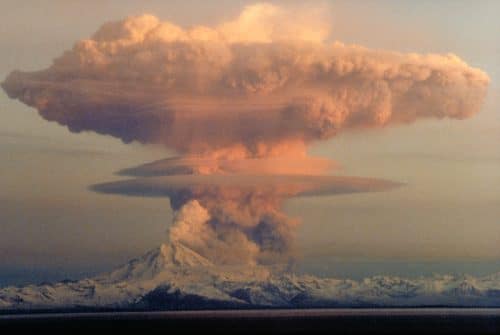The eruption of a supervolcano will cause fatal damage to modern human civilization all over the world, an agricultural catastrophe, an economic emergency and famine that could lead to the death of hundreds of millions and even more.

By Dr. Daniel Mader, Angle, Science and Environment News Agency
Every child knows that volcanoes can be very dangerous. They may erupt with great force, emit very hot lava flows that can cover a vast area, emit toxic gases, a lot of ash, deadly pyroclastic flows and more. At the same time, the danger from volcanoes is mostly local - within a few kilometers of the volcano. This was the case with one of the most famous volcanic eruptions in history, of the Roman city of Pompeii which was buried by the eruption of Mount Vesuvius in 79 AD.
Once every few tens, or hundreds, of years, a volcano erupts with more extensive effects. A good example of this is the eruption of the Eyjafjallajökull volcano in Iceland, which in 2010 paralyzed European aviation for several days due to the emission of huge amounts of ash, which endangered the jet engines of airplanes.
The Volcanic Eruption Index ranks volcanic eruptions according to their intensity, between 8-0. On this scale, magnitude 0 is a very weak eruption, many of which occur all the time. The eruption in Pompeii, as well as the eruption of Mount St. Helens in the USA in 1981, reached level 5, which is equal to the power of 1,600 atomic bombs like the one dropped on Hiroshima.
The eruption of the Tambora volcano in Indonesia in 1815 reached level 7, the most powerful explosion recorded in human history. The volcano emitted such a large amount of volcanic material into the atmosphere that it blocked solar radiation and caused significant global cooling for several years. The year 1816 is known in history as a "year without summer", where it snowed in the state of New York in the USA in the middle of summer, and where the heaviest famine in the 19th century occurred due to many crops that failed.
All this dwarfs the eruption of a supervolcano. 75 thousand years ago, the Toba volcano erupted in Indonesia and probably almost caused the extinction of humanity. This eruption had a magnitude of 8 and emitted an amount of ash that is enough to cover Argentina in a meter thick layer. The ash that was emitted into the atmosphere resulted in a drop of about 15 degrees Celsius in the global average temperature for about a decade, to severe damage to most living creatures, to the extinction of some of them, and parachuting in the number of people up to the number of A few thousand all over the world due to damage to the food supply.
About seven supervolcano sites are known in the world and in the last million years there have been four supervolcano eruptions.
Will the eruption of a supervolcano today lead to the extinction of humanity? Most likely not, but it will cause fatal damage to modern human civilization all over the world, an agricultural catastrophe, an economic emergency and a famine that could lead to the death of hundreds of millions or even more.

2 תגובות
Hagai
read…
http://www.npr.org/sections/krulwich/2012/10/22/163397584/how-human-beings-almost-vanished-from-earth-in-70-000-b-c
"All this is dwarfed by the eruption of a super-volcano. 75 thousand years ago, the Toba volcano erupted [...] and the number of people dropped to a few thousand all over the world due to damage to the food supply".
For lack of other words - where did you get this nonsense?
There is no known event in prehistory that is pointed to as the "almost extinction of the human race". We do not have enough information like this and there is nothing around 70-80 thousand BC that indicates any damage to the sequence of human development.
This claim is perplexing and roughly equal to the flood claim (which also has no archaeological evidence).